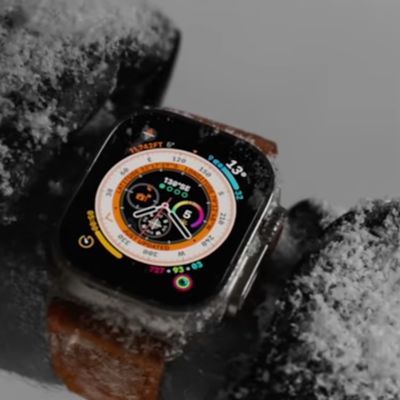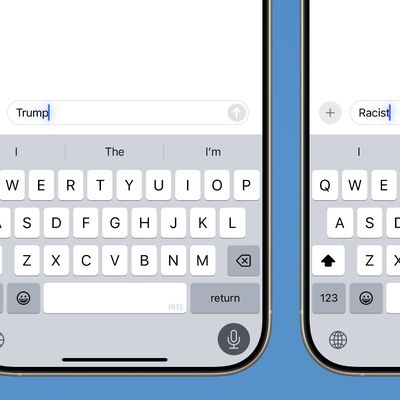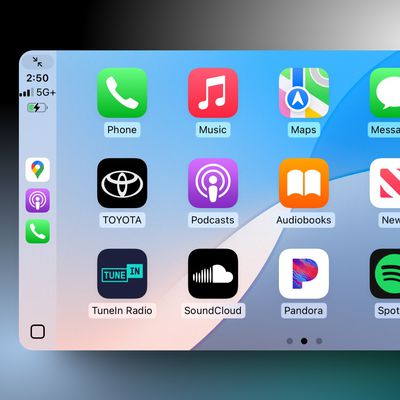App Store 'Name Squatters' Drawing Attention
Recombu publicizes complaints from App Store developers about other users "squatting" on application names, taking advantage of Apple's policy requiring that each application have a unique name to claim certain names for themselves without actually releasing an application. The issue was brought to light by iPhone game developers at Atomic Antelope who recently discovered that the name they desired for their latest iPhone game was unavailable despite there being no application by that name in the App Store.
Having spent months developing an app called 'Twitch', when it came to Atomic Antelope registering the app's name, it couldn't. Someone else had registered the name 'Twitch' but when Atomic Antelope looked to see if it could find it on the app store, it couldn't. Worse still, unlike domain names, Antomic Antelope had no way of contacting the person who had registered the name.
The issue arises because iTunes Connect allows users to partially submit an application at any time without requiring that an application binary be submitted. Consequently, a developer need only register for the iPhone Developer Program, select a unique application title, and add entries for a few required data fields.
This practice is certainly not new, but is just now starting to receive significant attention. Recombu points to one developer who almost a year ago realized what was happening and decided to grab "dozens and dozens of good sounding applications names." Unlike domain squatting in which users have financial incentive to hoard domain names in hopes of selling the rights to them, the anonymous nature of this App Store name squatting suggests that users may simply be hoarding "good" application names "just in case" they end up developing an appropriate iPhone application. Many of these applications may never come to be, forcing other developers with actual apps into second or third choice names.
The reason for Apple allowing names to be registered before binaries are submitted is clear, as the application's name will almost certainly be featured in numerous locations throughout the application, requiring the developer to have the name already claimed before submitting the final application. But the question remains whether Apple can or should adjust its policies in some way to reduce instances of name squatting.
Popular Stories
In a recent press release, Apple confirmed that iOS 18.4 will be released in April.
From the Apple News+ Food announcement:Coming with iOS 18.4 and iPadOS 18.4 in April, Apple News+ subscribers will have access to Apple News+ Food, a new section that will feature tens of thousands of recipes — as well as stories about restaurants, healthy eating, kitchen essentials, and more — from the...
In an all-caps post on Truth Social today, U.S. President Donald Trump said Apple should fully end its diversity, equity, and inclusion (DEI) policies.
Tim Cook meeting with President Trump in 2017
"APPLE SHOULD GET RID OF DEI RULES, NOT JUST MAKE ADJUSTMENTS TO THEM," he wrote.
Trump's post comes one day after Apple held its annual shareholders meeting, during which a majority of...
The Apple Watch Ultra 3 is expected to launch later this year, arriving two years after the previous model with a series of improvements.
While no noticeable design changes are expected for the third generation since the company tends to stick with the same Apple Watch design through three generations before changing it, there are a series of internal upgrades on the way.
By the time the ...
Apple is making significant headway on its long-rumored foldable iPhone, with a new report suggesting the company has achieved a major breakthrough by effectively eliminating the screen crease that plagues current foldable devices.
According to Korean publication ETNews, Apple is finalizing its component suppliers for the foldable iPhone, with the selection process expected to be completed...
Multiple iPhone owners today noticed a pronunciation processing issue that causes the word "Trump" to momentarily show up when using dictation to send a message with the word "racist."
In some cases, when speaking the word racist through the iPhone's built-in dictation feature, the iPhone briefly interprets the spoken word as "Trump" and "Trump" text shows up in the Messages app before being ...
According to a post on X today from a leaker known as Kosutami, Apple plans to launch AirPods Pro 3 in May or June this year.
The leaker also claimed that an AirTag 2 will launch around the same time.
Kosutami is best known as a collector of prototype Apple hardware, but they have occasionally shared accurate information about Apple's future product plans. For example, they accurately...
Apple plans to launch a second-generation AirTag in May or June this year, according to a post today from a leaker known as Kosutami.
Bloomberg's Mark Gurman previously reported that a new AirTag would be released in mid-2025. May or June would align with that timeframe.
Below, we recap three new features rumored for the AirTag 2:
With a second-generation Ultra Wideband chip, the...
The first beta of iOS 18.4 is now available, and it includes a small but useful change for CarPlay.
As we noted in our list of iOS 18.4 features, CarPlay now shows a third row of icons, up from two rows previously. However, this change is only visible in vehicles with a larger center display. For example, a MacRumors Forums member noticed the change in a Toyota Tundra, which can be equipped...





















